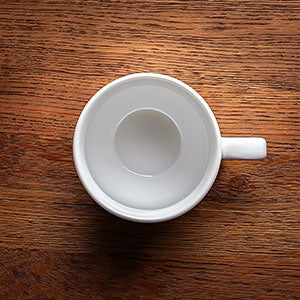Can You Really Get A Good Night’s Rest With Tea For Sleep?

We all know how important sleep is for our health and general wellbeing. When you don’t get enough sleep at night, you may struggle with a lack of focus, energy, and motivation during the day. As a result, you may even feel grumpy or short-tempered.
However, many people have difficulty falling asleep fast and staying asleep long enough to replenish their daily stamina. According to the Cleveland Clinic, sleep disorders affect up to 70 million Americans yearly, with about 33-50% of the population experiencing occasional insomnia symptoms.
The good news is there are simple ways to help your body get a good night’s sleep without visiting a doctor or investing time in a sleep study. Adopting healthier habits (like avoiding caffeine in the evening) and establishing a regular nightly routine are two very effective methods of improving your sleep. Just like caffeine can boost your energy when you wake in the morning, adding a cup of the right tea to your nightly routine can help you relax and put your brain in the right mindset to drift off peacefully and quickly.
You may have wondered whether you can really get a better night’s rest with tea for sleep. It turns out science supports tea’s role in helping to improve sleep quality. In addition to choosing tea that contains sleep-supporting ingredients, forming a habit of drinking a cup before bed is a great way to signal to your body that it will soon be time to sleep.
If you’re looking for the perfect tea for sleep, avoid black tea, matcha, chai, and even green tea, all of which contain caffeine. Instead, herbal teas are a great option. Keep reading to find out why.
Do Sleep Teas Really Work?
While camomile, passionflower, and rooibos are all extremely popular ingredients to support a good night’s sleep, melatonin tea for sleep has also been recently introduced.
Melatonin is a hormone your body produces and releases naturally through our body’s internal clock (often called the “Circadian Rhythm”), so our brains know when it’s time to sleep vs. when to wake. It doesn’t actually cause us to fall asleep, but as our melatonin levels rise in the evening, our bodies naturally begin to unwind and settle into a sense of relaxation.
Many people turn to melatonin supplements when their body’s natural rhythm gets thrown out of balance from, for example, insomnia or jet lag. But you don’t have to be a frequent insomniac to benefit from melatonin. The production of this vital hormone can begin to reduce as we age, so you may also benefit from adding melatonin to your bedtime routine as time goes on. Consult your doctor for the best advice.
Incorporating herbal tea and tea with melatonin can help you fall asleep more easily, stay asleep longer, and maintain a healthy balance between sleep and wakefulness, which is incredibly positive for your overall physical and mental health.
What Is The Best Tea For Sleep?
In addition to melatonin, camomile, passionflower, and rooibos are all essential ingredients in Twinings teas for sleep. Keep reading to learn more about these:
Melatonin
Since melatonin is a naturally occurring hormone, it offers a little more of a ‘kick’ in terms of its sleep-promoting properties. That makes it an incredibly effective choice for those with difficulty sleeping, helping their bodies reset the Circadian Rhythm and get back to a regular sleep schedule. When combined with the benefits of herbal ingredients, melatonin tea for sleep can be highly effective. Twining’s Superblends Sleep+ tea with melatonin offers a delicious vanilla and cinnamon flavour, while the melatonin and camomile work together to help you get a great night’s rest.
Camomile
If you’re looking for a relaxing tea for sleep but don’t feel like you need the added benefit of melatonin, Twinings Nightly Calm, Camomile Honey & Vanilla, and Pure Camomile are all excellent choices. Camomile flowers contain active compounds (like apigenin) that produce a mild relaxing and therapeutic effect when they bind with the benzodiazepine receptors in the brain.
Passionflower
Passionflower also contains relaxing compounds similar to camomile, which can help reduce anxiety. Studies show that consuming a cup of tea containing passionflower can help you sleep. Combined with other sleep-supporting ingredients, it can be very effective as a natural treatment for insomnia. Twining’s Unwinding Passionflower pairs the herb with camomile to maximise its effect.
Rooibos
Rooibos tea is a tasty, naturally caffeine-free and delicious drink. Twining’s Superblends Adaptogens Calm pairs rooibos with ashwagandha root, another herbal component that promotes calm and peacefulness.
Incorporate Tea For Sleep Into Your Routine For A Great Night’s Rest
Maintaining proper sleep hygiene and a consistent schedule are extremely important for keeping your Circadian Rhythm on track and ensuring you get a great night’s sleep as often as possible. While we would all love to take the time each evening to meditate, eat the perfect foods, and cut out caffeine, sometimes life gets in the way, and we need a little help. If you have trouble falling or staying asleep at night, adding a cup of tea for sleep into your nightly routine is a simple and easy solution — and you may be surprised by its effectiveness.
With our Master Blenders’ and Expert Herbalists’ 300 years of experience, Twinings teas for sleep incorporate only the finest, highest quality ingredients that have been trusted for centuries. We also offer the most enticing flavours available, so you never have to sacrifice great taste for health benefits. Check out our range of herbal teas — each is carefully crafted to offer blends that taste great and do you good.




